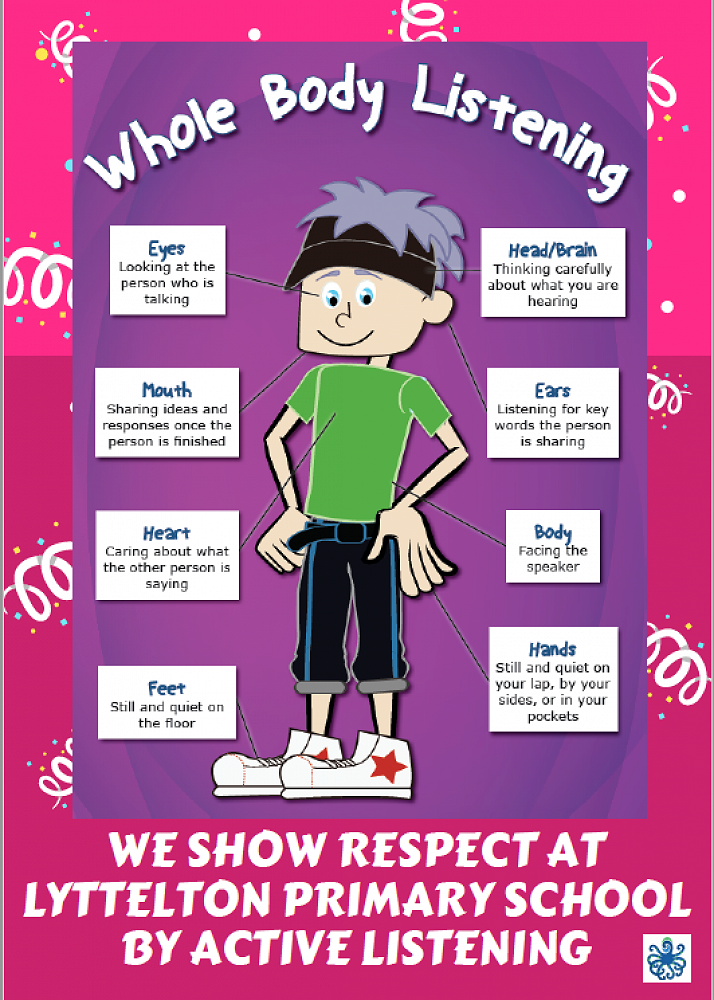
PB4L Positive Behaviour For Learning: Active Listening
This term we will be looking at many facets of the Lyttelton School value, Manaakitanga.
For the past 3 weeks we have been focussing on Being Ready For Learning. This is part of practicing Manaakitanga (Respect) for our own, and others, learning at our kura.
The ways in which our tamariki said they show they are ready for learning has included " being on time for class, setting goals for the day, eating our food, listening to the person speaking, using our hand when we want to talk in a group, and having empty hands on the mat". Each learning space has displayed their specific expectations.
It is great we have children who know what is expected of them, and are able to articulate these expectations.
For the next 2 weeks, as a school, we will be looking at the concept of Active Listening, still under the umbrella of Manaakitanga.
Listening is one of the most important skills we can develop. How well we listen has a major impact on our learning, as well as the quality of our relationships with others.
Research suggests that we only remember between 25 percent and 50 percent of what we hear. That means that when we talk to our students, colleagues, customers, or even our spouse, for 10 minutes, they pay attention to less than half of the conversation!
The way to improve our listening skills is to practice "active listening." This is where we make a conscious effort to hear not only the words that another person is saying but, more importantly, the complete message being communicated, by using our whole body.
We will be teaching our children to look at the person talking, to think carefully about what the person has said, to hear the key words or message, to share their ideas once that person has finished talking, to show empathy to the person talking (maybe by nodding, or smiling), to stand or sit quietly while listening, and to face the speaker.
